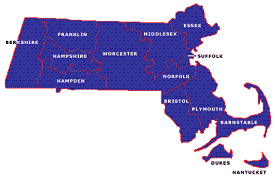 A 2 percent biodiesel mandate beginning next year and increasing to 5 percent in 2013 in Massachusetts has hit some glitches … thanks to confusion over what the next Renewable Fuels Standard (RFS2) might bring …. but it could now be moving forward.
A 2 percent biodiesel mandate beginning next year and increasing to 5 percent in 2013 in Massachusetts has hit some glitches … thanks to confusion over what the next Renewable Fuels Standard (RFS2) might bring …. but it could now be moving forward.
Biodiesel Magazine reports the measure has come under fire because it only allows waste-derived biodiesel, a provision put into the mandate thanks to what lawmakers thought the EPA would allow under RFS2. But despite a pronouncement by the Massachusetts Oilheat Council (MOC) in its Nov. 13 newsletter that the requirement has had a “spell of relative silence,” some progress could be at hand:
On Sept. 30, MOC president Michael Ferrante sent an email to Dwayne Bregger, director of renewable and alternative energy development in the Massachusetts Department of Energy Resources, asking specifics regarding the mandate, to which Bregger replied, “Do know that we are moving forward with the Early Action Year beginning July 2010. We anticipate the EPA RFS2 protocol for greenhouse gas reductions to be available by the end of this year and that we will find it acceptable for adoption for [the Massachusetts] program. At that time, DOER will be able to qualify all biofuels (regardless of feedstock) that can demonstrate the 50 percent GHG reduction.”
The state’s exclusion of soy and other virgin oil biodiesel in its mandate was based on EPA’s proposed RFS2 rule, which was flawed in methodology used to calculate GHG emissions from crop-based biodiesels. In Bregger’s response to Ferrante, he wrote, “The eligibility of biofuels from agricultural feedstocks will depend on whether they meet the 50 percent GHG reduction criterion as per the Protocol, which we will adopt (most likely EPA RFS2 protocol).”
Bregger also said, “Tracking the biofuels (and differentiating “advanced”/qualified biofuels from others) into [Massachusetts] and then through the [Massachusetts] market is an area that we are much engaged in now. We will need to complete those procedures and then move into draft regulations.”
It’s another example of how the flawed thinking the EPA put into RFS2 is causing some anxiety in the green fuels sector. Let’s hope someone can get this mess straightened out before it starts to hit more mandates across the country.

